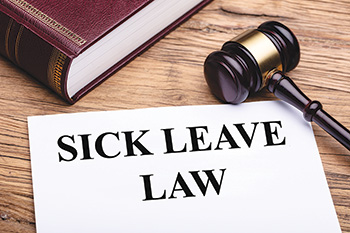COVID-19 pandemic makes clear why we need national paid sick leave
 The COVID-19 pandemic continues to highlight the costs of economic inequality in the United States.
The COVID-19 pandemic continues to highlight the costs of economic inequality in the United States.
There’s the inequality in access to paid sick days and health insurance between high- and low-wage earners.
There’s the inequality in the ability to work from home across sectors, with workers in one of the most exposed sectors — leisure and hospitality — being the least likely to have the ability to work from home.
And there will be inequality in the economic impact of the pandemic, as workers in those sectors are at higher risk of reduced work hours or losing their jobs stemming from the drop in spending on travel and eating out.
Fortunately, there is a relatively simple way to address some of these inequities: The federal government can pass legislation to provide paid sick leave for all workers. Paid sick leave not only helps reduce transmission of disease, it also provides economic security for workers who might otherwise lose income if they have to take time off from work.
STATES WITH PAID SICK LEAVE
Federal legislators need to look no further than the states to find multiple models for paid sick days legislation. Thirteen states and the District of Columbia require employers to provide paid sick leave. States with paid sick leave laws in place or set to take effect include: Arizona, California, Connecticut, Maine, Maryland, Michigan, Nevada, New Jersey, Oregon, Rhode Island, Vermont, Washington and Washington, D.C.
Each of these states sets an accrual rate defining how many hours of paid leave employers must provide based upon the hours worked, typically with some cap on leave that can be used per year.
Covered employers vary somewhat across the states, with some states exempting small employers or setting varying accrual rates and usage caps based upon the size of the employer.
In lieu of state action, many localities have also passed protections for their workers to make sure they have paid sick days when they need it.
STATES WITH LEAVE PREEMPTION LAWS
Unfortunately, 23 states have passed paid leave preemption laws prohibiting cities and counties from requiring local employers to offer paid sick leave or other forms of paid family or medical leave. For example, New Jersey and Oregon passed state-level paid sick leave but prohibit cities and municipalities from passing more generous policies.
States with paid leave preemption laws include: Alabama, Arkansas, Florida, Georgia, Indiana Iowa, Kansas, Kentucky, Louisiana, Maine Maryland, Michigan, Mississippi, Missouri, New Jersey, Tennessee, North Carolina, Ohio, Oklahoma, Oregon, Rhode Island South Carolina and Wisconsin.
IMPORTANT STEP TO REDUCE ECONOMIC INEQUALITY
National paid sick leave legislation is one important step toward reducing the economic inequality underscored by the COVID-19 pandemic. But it’s one of many steps needed to reduce the spread of illness, ensure medical care for those in need, provide a viable safety net for those workers whose jobs are at risk, and counter the economic slowdown that the pandemic is causing.
(Economic Policy Institute)


Leave a Reply